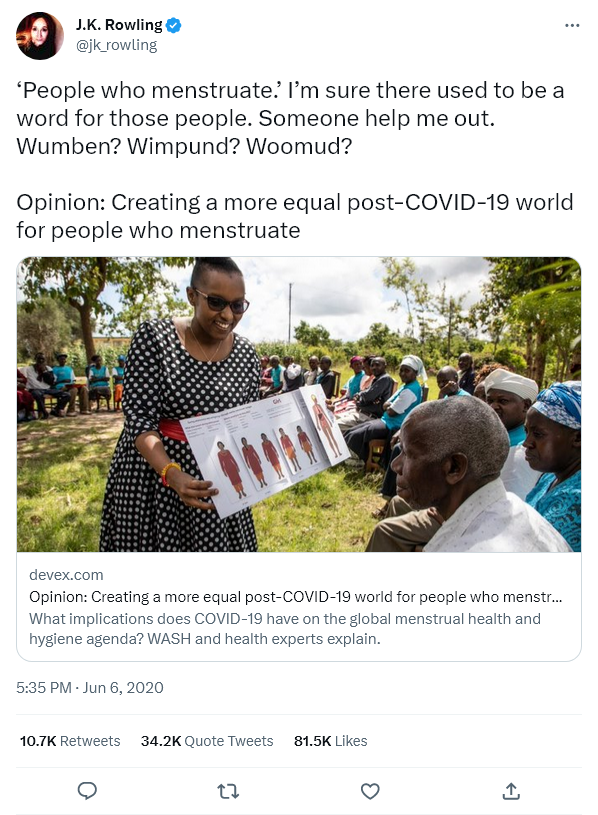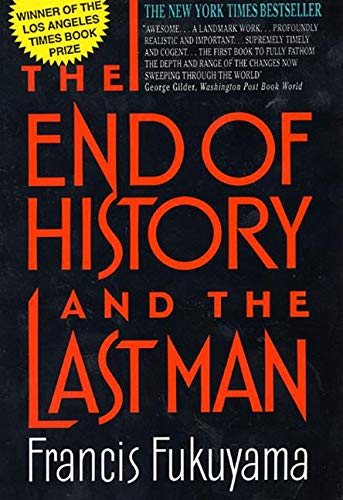Forgotten Weapons
Published 30 Apr 2018The CR-21 was a private effort to create a new rifle for the South African military in the 1990s. Bullpup designs were all the rage at the time (Austria has the AUG, France had the FAMAS, the UK had the SA80, etc), and so a company called Lyttelton Engineering Works (now part of Denel Land Systems) created a bullpup conversion design for the South African R4 (Galil). It was given a very fluid, futuristic look, and equipped with a fiber optic optic without any iron sights. The action and magazines remained original R4/Galil, however.
The weapon was promoted to the South African military as an economical upgrade package for the R4 rifles already in service, but was met with little interest. Further efforts to sell the weapon to South African police and international military or security customers similarly met with no success. In total, only 200 complete rifles were made, plus parts for another 200. They achieved some notoriety in fictional media because of their looks, including use in the film District 9. As often happens, however, becoming popular in film or video games does not equate to commercial success.
Many thanks to the anonymous collector who let me take a look at this piece and bring you a video on it!
(more…)
February 17, 2023
Vektor CR21: South Africa’s Futuristic Bullpup
QotD: Risk mitigation in pre-modern farming communities
Let’s start with the first sort of risk mitigation: reducing the risk of failure. We can actually detect a lot of these strategies by looking for deviations in farming patterns from obvious efficiency. Modern farms are built for efficiency – they typically focus on a single major crop (whatever brings the best returns for the land and market situation) because focusing on a single crop lets you maximize the value of equipment and minimize other costs. They rely on other businesses to provide everything else. Such farms tend to be geographically concentrated – all the fields together – to minimize transit time.
Subsistence farmers generally do not do this. Remember, the goal is not to maximize profit, but to avoid family destruction through starvation. If you only farm one crop (the “best” one) and you get too little rain or too much, or the temperature is wrong – that crop fails and the family starves. But if you farm several different crops, that mitigates the risk of any particular crop failing due to climate conditions, or blight (for the Romans, the standard combination seems to have been a mix of wheat, barley and beans, often with grapes or olives besides; there might also be a small garden space. Orchards might double as grazing-space for a small herd of animals, like pigs). By switching up crops like this and farming a bit of everything, the family is less profitable (and less engaged with markets, more on that in a bit), but much safer because the climate conditions that cause one crop to fail may not impact the others. A good example is actually wheat and barley – wheat is more nutritious and more valuable, but barley is more resistant to bad weather and dry-spells; if the rains don’t come, the wheat might be devastated, but the barley should make it and the family survives. On the flip side, if it rains too much, well the barley is likely to be on high-ground (because it likes the drier ground up there anyway) and so survives; that’d make for a hard year for the family, but a survivable one.
Likewise – as that example implies – our small farmers want to spread out their plots. And indeed, when you look at land-use maps of villages of subsistence farmers, what you often find is that each household farms many small plots which are geographically distributed (this is somewhat less true of the Romans, by the by). Farming, especially in the Mediterranean (but more generally as well) is very much a matter of micro-climates, especially when it comes to rainfall and moisture conditions (something that is less true on the vast flat of the American Great Plains, by the by). It is frequently the case that this side of the hill is dry while that side of the hill gets plenty of rain in a year and so on. Consequently, spreading plots out so that each family has say, a little bit of the valley, a little bit of the flat ground, a little bit of the hilly area, and so on shields each family from catastrophe is one of those micro-climates should completely fail (say, the valley floods, or the rain doesn’t fall and the hills are too dry for anything to grow).
Bret Devereaux, “Collections: Bread, How Did They Make It? Part I: Farmers!”, A collection of Unmitigated Pedantry, 2020-07-24.
February 16, 2023
Cut the Sliding Dovetail Joint with common hand tools
Rex Krueger
Published 15 Feb 2023There’s another dovetail that you might not know about. Learn to cut it and use it.
(more…)
Twist Solution | Paul Sellers
Paul Sellers
Published 7 Oct 2022Take the guesswork out of truing up a twisted board by setting lines that guarantee dead-on accuracy. When we buy wood, it is often too twisted to work with, so we must remove the twist, cup, and bow.
This quick tip gives you lines to work to with only minimal measuring and a positive outcome.
(more…)
QotD: Obituaries
We are enjoined to say nothing ill of the dead — the recently dead, that is, guidance being somewhat less clear as to when denigration of the dear departed may with decency begin. On the whole I agree that death should result in a moratorium on backbiting and other popular forms of character examination, for most people’s deaths bereave someone and most people’s faults are rather minor by comparison with the eternal oblivion that has befallen them. This is not an absolute rule, of course, for some people are so awful that no decent interval before vituperation begins is due to them. The length of the moratorium should be roughly proportional to character, as punishment should be roughly proportional to the crime. The deceased having been a public figure also reduces the decent interval before which his sins can be examined and aired with propriety.
Most obituary notices are quite properly mealymouthed, the word “irreplaceable” being a standby. Strictly speaking, it is never false, for no one is exactly the same as anyone else, and therefore everyone is irreplaceable. “Sadly missed” is another favorite. “Yes, but by whom and for how long?” one is inclined to ask. Frankness is not the first thing that one looks for or expects in obituary notices.
Theodore Dalrymple, “Obit Snit”, Taki’s Magazine, 2018-06-09.
February 15, 2023
J.K. Rowling’s critics reach the “Burn the witch!” phase
In The Free Press, Megan Phelps-Roper introduces a new audio series featuring extensive interaction with J.K. Rowling herself:

J.K. Rowling’s Harry Potter books were insanely popular among Millennials until she had the temerity to say things the Trans* activists hated. Now, they try to sell customized copies of her books that omit her name completely.
J.K. Rowling is arguably the most successful author in the history of publishing, with the possible exception of God. And “Harry Potter” was a kind of bible for my generation. Since its publication beginning in the late ’90s, the series has taught tens of millions of children about virtues like loyalty, courage, and love — about the inclusion of outsiders and the celebration of difference. The books illustrated the idea of moral complexity, how a person who may at first appear sinister can turn out to be a hero after all.
The author herself became part of the legend, too. A broke, abused, and depressed single mother — writing in longhand at cafes across Edinburgh while her baby girl slept in a stroller beside her — she had spun a tale that begat a global phenomenon. If “Harry Potter” was a bible, then Rowling became a kind of saint.
When she gave the Harvard commencement address in 2008, she was introduced as a social, moral, and political inspiration. Her speech that day was partly about imagination: “the power that enables us to empathize with humans whose experiences we have never shared”.
“We do not need magic to transform our world,” Rowling told the rapt audience. “We carry all the power we need inside ourselves already.”
The uproarious applause that greeted her in 2008 is hard to imagine today. It’s hard to imagine Harvard — let alone any prestigious American university — welcoming Rowling. Indeed, I’m not sure she’d be allowed to give a reading at many local libraries.
That’s because to many, Rowling has since become a kind of Voldemort — the villain of villains in her own stories.
It all blew up in the summer of 2020.
“‘People who menstruate'”, Rowling wrote on Twitter, quoting a headline. “I’m sure there used to be a word for those people. Someone help me out. Wumben? Wimpund? Woomud?”
She continued: “If sex isn’t real, there’s no same-sex attraction. If sex isn’t real, the lived reality of women globally is erased. I know and love trans people, but erasing the concept of sex removes the ability of many to meaningfully discuss their lives. It isn’t hate to speak the truth.”
It’s hard to capture the breadth of the firestorm that followed.
Medieval French Toast
Tasting History with Max Miller
Published 14 Feb 2023
(more…)
Refuting The End of History and the Last Man
Freddie deBoer responds to a recent commentary defending the thesis of Francis Fukuyama’s The End of History and the Last Man:
… Ned Resnikoff critiques a recent podcast by Hobbes and defends Francis Fukuyama’s concept of “the end of history”. In another case of strange bedfellows, the liberal Resnikoff echoes conservative Richard Hanania in his defense of Fukuyama — echoes not merely in the fact that he defends Fukuyama too, but in many of the specific terms and arguments of Hanania’s defense. And both make the same essential mistake, failing to understand the merciless advance of history and how it ceaselessly grinds up humanity’s feeble attempts at macrohistoric understanding. And, yes, to answer Resnikoff’s complaint, I’ve read the book, though it’s been a long time.
The big problem with The End of History and the Last Man is that history is long, and changes to the human condition are so extreme that the terms we come up with to define that condition are inevitably too contextual and limited to survive the passage of time. We’re forever foolishly deciding that our current condition is the way things will always be. For 300,000 years human beings existed as hunter-gatherers, a vastly longer period of time than we’ve had agriculture and civilization. Indeed, if aliens were to take stock of the basic truth of the human condition, they would likely define us as much by that hunter-gatherer past as our technological present; after all, that was our reality for far longer. Either way – those hunter-gatherers would have assumed that their system wasn’t going to change, couldn’t comprehend it changing, didn’t see it as a system at all, and for 3000 centuries, they would have been right. But things changed.
And for thousands of years, people living at the height of human civilization thought that there was no such thing as an economy without slavery; it’s not just that they had a moral defense of slavery, it’s that they literally could not conceive of the daily functioning of society without slavery. But things changed. For most humans for most of modern history, the idea of dynastic rule and hereditary aristocracy was so intrinsic and universal that few could imagine an alternative. But things changed. And for hundreds of years, people living under feudalism could not conceive of an economy that was not fundamentally based on the division between lord and serf, and in fact typically talked about that arrangement as being literally ordained by God. But things changed. For most of human history, almost no one questioned the inherent and unalterable second-class status of women. Civilization is maybe 12,000 years old; while there’s proto-feminist ideas to be found throughout history, the first wave of organized feminism is generally defined as only a couple hundred years old. It took so long because most saw the subordination of women as a reflection of inherent biological reality. But women lead countries now. You see, things change.
And what Fukuyama and Resnikoff and Hanania etc are telling you is that they’re so wise that they know that “but then things changed” can never happen again. Not at the level of the abstract social system. They have pierced the veil and see a real permanence where humans of the past only ever saw a false one. I find this … unlikely. Resnikoff writes “Maybe you think post-liberalism is coming; it just has yet to be born. I guess that’s possible.” Possible? The entire sweep of human experience tells us that change isn’t just possible, it’s inevitable; not just change at the level of details, but changes to the basic fabric of the system.
The fact of the matter is that, at some point in the future, human life will be so different from what it’s like now, terms like liberal democracy will have no meaning. In 200 years, human beings might be fitted with cybernetic implants in utero by robots and jacked into a virtual reality that we live in permanently, while artificial intelligence takes care of managing the material world. In that virtual reality we experience only a variety of pleasures that are produced through direct stimulation of the nervous system. There is no interaction with other human beings as traditionally conceived. What sense would the term “liberal democracy” even make under those conditions? There are scientifically-plausible futures that completely undermine our basic sense of what it means to operate as human beings. Is one of those worlds going to emerge? I don’t know! But then, Fukuyama doesn’t know either, and yet one of us is making claims of immense certainty about the future of humanity. And for the record, after the future that we can’t imagine comes an even more distant future we can’t conceive of.
People tend to say, but the future you describe is so fanciful, so far off. To which I say, first, human technological change over the last two hundred years dwarfs that of the previous two thousand, so maybe it’s not so far off, and second, this is what you invite when you discuss the teleological endpoint of human progress! You started the conversation! If you define your project as concerning the final evolution of human social systems, you necessarily include the far future and its immense possibilities. Resnikoff says, “the label ‘post-liberalism’ is something of an intellectual IOU” and offers similar complaints that no one’s yet defined what a post-liberal order would look like. But from the standpoint of history, this is a strange criticism. An 11th-century Andalusian shepherd had no conception of liberal democracy, and yet here we are in the 21st century, talking about liberal democracy as “the object of history”. How could his limited understanding of the future constrain the enormous breadth of human possibility? How could ours? To buy “the end of history”, you have to believe that we are now at a place where we can accurately predict the future where millennia of human thinkers could not. And it’s hard to see that as anything other than a kind of chauvinism, arrogance.
Fukuyama and “the end of history” are contingent products of a moment, blips in history, just like me. That’s all any of us gets to be, blips. The challenge is to have humility enough to recognize ourselves as blips. The alternative is acts of historical chauvinism like The End of History.
Ancient Rome’s Naked Fertility Festival (Lupercalia)
Tasting History with Max Miller
Published 8 Feb 2022
(more…)
QotD: The divine right of kings
The best case for divine right monarchy is the voters’ behavior in a democracy. Unfortunately, the worst case for divine right monarchy is: divine right monarchs.
England’s James I, for instance, was a deeply weird dude. Though he wrote a whole book about his divine right to rule, he kept his weirdness sufficiently in check so as not to alienate his court. Alas, his heir didn’t bother, and we know how that turned out. And so it went with just about any divine right monarch — the more people who actually saw him, the flimsier the theory seemed. History is full of examples of kingdoms “ruled” by insane kings, but not too many of kingdoms thriving when the people knew the king was a lunatic. Feebleminded monarchs are generally kept under lock and key by their courtiers, or they end up Epsteined.
Even democracies once understood this. Pick any 19th century American legislator, for example. As P.J. O’Rourke once said about rock stars, to call one of these guys a drunken, borderline-illiterate pervert just means you’ve read his autobiography. But they knew enough to keep it sufficiently in check around the voters, so that so long as they didn’t actually Chappaquiddick someone, they’d face no repercussions.
Speaking of Chappaquiddick, the Media has always been complicit in the great game of Fool-the-Rubes. They only do it for Democrats now, of course, but that’s the real problem these days: the Media has been doing all this for so long, and so successfully, that they no longer feel the need to bother. Just as Charles I decided to let his freak flag fly because hey, why not, I’m the king, so the Democrat-Media complex went all-in in 2008. You watch these guys — Don Lemon, say, mocking Trump voters as illiterate hicks — and the expression on their face is one of relief. It feels good to finally let it all out, and the more you do it, the better it feels.
Severian, “Rule by Lunatic”, Rotten Chestnuts, 2020-01-29.
February 14, 2023
You need a tailor. And a cobbler.
At least, that’s Tom Knighton‘s take:

“The Desbecker-Block Tailoring Co. Buffalo, N. Y. Tailors to all America. We’ve a man on the spot. He takes your measure – we do the rest.” by Boston Public Library is licensed under CC BY 2.0 .
I’m now of the opinion that every man needs a tailor and a cobbler to go along with their barber.
Why? Because quality has a quantity all its own.
Yeah, I know that phrase usually goes the other way around, but we’re not talking about warfare where you need a lot of tanks and airplanes. We’re talking about clothes and accouterments. You can only wear one suit and one pair of shoes at a time. You’ve only got one head to wear a hat on. You don’t need 500 of each to have a well-rounded wardrobe.
So why do we? Why do we, as a society, insist on buying so much so cheaply?
What’s more, are you someone who supports those in the trades while simultaneously engaging in activity that threatens some of them?
Look, I get that not everyone can drop $500 for shoes or $5,000 for suits. I sure can’t, after all, so there’s no way I’d expect anyone else to. In fact, no one has to do any such thing.
However, what they can do is buy the best quality they can find, particularly in a grade that can be repaired and/or altered if needed.
We can start utilizing these tradesmen, hopefully needing them more often than our plumbers or auto mechanics. Not only will we dress better, but we’ll also show more young people there are other ways to go forward in life without spending tens of thousands of dollars to get a college degree that qualifies them for little more than to ask, “Do you want fries with that?”
I’m certainly in agreement with Tom on where the needle should rest on the quality-quantity meter, in that I’ve always preferred to buy higher quality whenever I could afford it rather than cheaper but lower quality items. It’s mostly paid off for me, although others in my family were of the other persuasion, where “more now” was better than “lasts longer”.
In a later post, he quotes Sam Vimes and again, I largely agree:
Despite that, I can buy quality. I may have to pay a bit more upfront, but it’s like the Vimes theory of boots written by Sir Terry Pratchett that’s been talked about here a couple of times:
The reason that the rich were so rich, Vimes reasoned, was because they managed to spend less money. Take boots, for example. He earned thirty-eight dollars a month plus allowances. A really good pair of leather boots cost fifty dollars. But an affordable pair of boots, which were sort of OK for a season or two and then leaked like hell when the cardboard gave out, cost about ten dollars. Those were the kind of boots Vimes always bought, and wore until the soles were so thin that he could tell where he was in Ankh-Morpork on a foggy night by the feel of the cobbles. But the thing was that good boots lasted for years and years. A man who could afford fifty dollars had a pair of boots that’d still be keeping his feet dry in ten years’ time, while a poor man who could only afford cheap boots would have spent a hundred dollars on boots in the same time and would still have wet feet. This was the Captain Samuel Vimes “Boots” theory of socioeconomic unfairness.
So, spend the money on the leather boots and skip having to spend it later.
As a result, though, that’s kind of luxurious.
China’s awkward actions on the world stage do not charm the neighbours
CDR Salamander explains why the BRIC (Brazil-Russia-India-China) “coalition” is as unlikely to occur in the real world as any other opium pipe-dream:
Yes, the USA and Canada had our Balloons of February, but in the last year or so, what has China been doing to seem like a pleasant alternative to the United States to the rest of the world?
Her largest neighbor? They get sticks:
The root cause is an ill-defined, 3,440km (2,100-mile)-long disputed border.
Rivers, lakes and snowcaps along the frontier mean the line can shift, bringing soldiers face to face at many points, sparking a confrontation.
The two nations are also competing to build infrastructure along the border, which is also known as the Line of Actual Control. India’s construction of a new road to a high-altitude air base is seen as one of the main triggers for a deadly 2020 clash with Chinese troops.
How bad is the situation?
Despite military-level talks, tensions continue. In December 2022 troops clashed for the first time in more than a year.
It happened near the Tawang sector of Arunachal Pradesh state, the eastern tip of India. Some soldiers suffered minor injuries.
De-escalation work has taken place since a major clash in June 2020. The Galwan Valley battle — fought with sticks and clubs, not guns — was the first fatal confrontation between the two sides since 1975.
At least 20 Indian and four Chinese soldiers died.
Another face-off in January 2021 left troops on both sides injured. It took place near India’s Sikkim state, between Bhutan and Nepal.
The “I” and “C” in the B.R.I.C. are not going to be close friends, ever — one of the reasons I roll my eyes at those who propose the BRIC nations as some kind of power block — something only slightly sillier than the Cold War “Non Aligned Movement.”
With the “B” being the basket case Brazil (always the nation of the future, and always will be), and the “R” being Russia, I mean, child please.
Another nation that if the PRC was just slightly more subtle and less arrogant they might have a chance to make things more difficult for the USA-Japan-Australia defense concerns is The Philippines. They had a window in the last couple of decades, but … if they’re doing this;
The PRC Wolf Warrior Lack of Charm Campaign perhaps may play well internally — and that may be all they care about — but there was a window not long ago that the PRC was playing smart on the world stage — making significant impact in Australia and having the USA happy to let them set up Confucius Institutes at our major universities, etc … but the last decade or so they somehow decided to play a different game.










